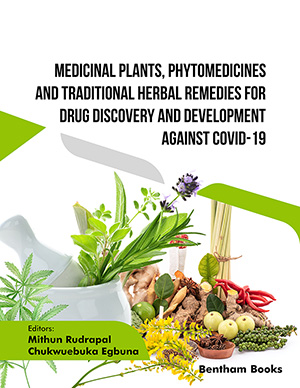Abstract
A major component in the protection of the brain against blood-borne toxic influences is the multispecific efflux pump P-glycoprotein. This pump, a 170 kD protein, located at the luminal side of the capillary endothelial cells, has a large capacity and is capable of extruding a wide array of structurally divergent substrates. The brain uptake of the majority of antidepressants and antipsychotics, as well as many other psychotropic drugs and endogenous compounds is hampered by the activity of P-glycoprotein. In this review we discuss the current state of knowledge concerning the role of Pglycoprotein on pharmacokinetics of psychiatric drugs and the impact of modulation of P-glycoprotein on major psychiatric disorders. Relevant issues in reference to the function of P-glycoprotein and other efflux pumps in the blood-brain barrier related to mood disorders and schizophrenia are addressed, such as a possible role of P-glycoprotein as a susceptibility factor in depressive disorders and psychotic disorders.
Keywords: P-glycoprotein, blood-brain barrier, major depressive disorder, antidepressive agents, schizophrenia, antipsychotic
Central Nervous System Agents in Medicinal Chemistry
Title: The Role of P-Glycoprotein in Psychiatric Disorders: A Reliable Guard of the Brain?
Volume: 11 Issue: 3
Author(s): Onno L. de Klerk, Fokko J. Bosker, Gert Luurtsema, Ilja M. Nolte, Rudi Dierckx, Johan A. den Boer and Heidrun Potschka
Affiliation:
Keywords: P-glycoprotein, blood-brain barrier, major depressive disorder, antidepressive agents, schizophrenia, antipsychotic
Abstract: A major component in the protection of the brain against blood-borne toxic influences is the multispecific efflux pump P-glycoprotein. This pump, a 170 kD protein, located at the luminal side of the capillary endothelial cells, has a large capacity and is capable of extruding a wide array of structurally divergent substrates. The brain uptake of the majority of antidepressants and antipsychotics, as well as many other psychotropic drugs and endogenous compounds is hampered by the activity of P-glycoprotein. In this review we discuss the current state of knowledge concerning the role of Pglycoprotein on pharmacokinetics of psychiatric drugs and the impact of modulation of P-glycoprotein on major psychiatric disorders. Relevant issues in reference to the function of P-glycoprotein and other efflux pumps in the blood-brain barrier related to mood disorders and schizophrenia are addressed, such as a possible role of P-glycoprotein as a susceptibility factor in depressive disorders and psychotic disorders.
Export Options
About this article
Cite this article as:
L. de Klerk Onno, J. Bosker Fokko, Luurtsema Gert, M. Nolte Ilja, Dierckx Rudi, A. den Boer Johan and Potschka Heidrun, The Role of P-Glycoprotein in Psychiatric Disorders: A Reliable Guard of the Brain?, Central Nervous System Agents in Medicinal Chemistry 2011; 11 (3) . https://dx.doi.org/10.2174/187152411798047744
| DOI https://dx.doi.org/10.2174/187152411798047744 |
Print ISSN 1871-5249 |
| Publisher Name Bentham Science Publisher |
Online ISSN 1875-6166 |
 26
26
- Author Guidelines
- Graphical Abstracts
- Fabricating and Stating False Information
- Research Misconduct
- Post Publication Discussions and Corrections
- Publishing Ethics and Rectitude
- Increase Visibility of Your Article
- Archiving Policies
- Peer Review Workflow
- Order Your Article Before Print
- Promote Your Article
- Manuscript Transfer Facility
- Editorial Policies
- Allegations from Whistleblowers
- Announcements
Related Articles
-
Crosslinked, Polymerized, and PEG-Conjugated Hemoglobin-Based Oxygen Carriers: Clinical Safety and Efficacy of Recent and Current Products
Current Drug Discovery Technologies Fish Hydrolysates: A Regulatory Perspective of Bioactive Peptides
Protein & Peptide Letters Geriatric Psychopharmacology in Acute Settings
Current Psychopharmacology Analgesia in PACU: Nonsteroidal Anti-Inflammatory Drugs
Current Drug Targets Dexmedetomidine Use in General Anaesthesia
Current Drug Targets Ethosomes as Novel Vesicular Carrier: An Overview of the Principle, Preparation and its Applications
Current Drug Delivery Pharmacological Neuroprotection after Perinatal Hypoxic-Ischemic Brain Injury
Current Neuropharmacology Cyclic Nucleotides Signaling and Phosphodiesterase Inhibition: Defying Alzheimer’s Disease
Current Drug Targets Autonomic Nervous System in Viral Myocarditis: Pathophysiology and Therapy
Current Pharmaceutical Design Recent Trends in Development of Fermented Milks
Current Nutrition & Food Science Hypertension in Diabetes: Optimal Pharmacotherapy
Cardiovascular & Hematological Agents in Medicinal Chemistry Coagulation and Sepsis
Endocrine, Metabolic & Immune Disorders - Drug Targets Microcirculation in Hypertension: An Update on Clinical Significance and Therapy
Current Vascular Pharmacology Whole Milk and Full-Fat Dairy Products and Hypertensive Risks
Current Hypertension Reviews Phosphodiesterase 5 Inhibitors - Drug Design and Differentiation Based on Selectivity, Pharmacokinetic and Efficacy Profiles
Current Pharmaceutical Design Chemical Constituents of Plants from the Genus Valeriana
Mini-Reviews in Organic Chemistry Mineralocorticoid Receptor Antagonism and Cardiac Remodeling in Ischemic Heart Failure
Current Medicinal Chemistry - Cardiovascular & Hematological Agents Adverse Drug Reactions in a Pulmonary Teaching Hospital: Incidence, Pattern, Seriousness, and Preventability
Current Drug Safety Beneficial Extracardiac Effects of Cardiovascular Medications
Current Cardiology Reviews State of the Art in Medical and Surgical Management of Pneumothorax
Current Respiratory Medicine Reviews


























